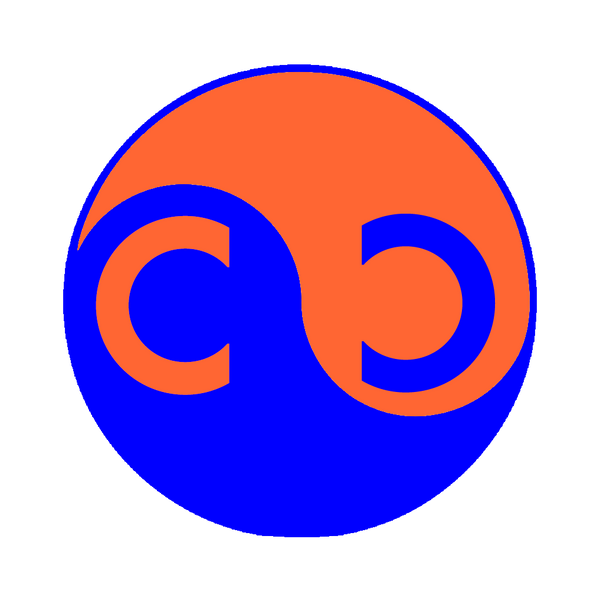Nerve Compression Syndrome
WHAT IS NERVE COMPRESSION SYNDROME?
When a nerve is squeezed or crushed, it causes “Nerve Compression Syndrome”. Nerves throughout the body, including the chest, back, upper and lower extremities can be affected. Common symptoms include pain, numbness, and muscle weakness near the nerve. As well as referred pain in other parts of the body.
WHAT OTHER TERMS ARE USED TO DESCRIBE NERVE COMPRESSION SYNDROME?
Nerve compression syndrome is also known as:
- Nerve Entrapment Syndrome.
- Nerve Root Compression.
- Compression Neuropathy.
- Entrapment Neuropathy.
- Trapped Nerve.
- Pinched Nerve.
- Nerve Damage.
WHAT ARE THE SIGNS AND SYMPTOMS OF A NERVE COMPRESSION SYNDROME?
Nerve compression syndrome symptoms usually appear gradually. The symptoms can be "Mild to Severe" and come and go. These symptoms may worsen if you continue engaging in activities that “Pull or Press on the Nerve”.
Depending on which nerve is affected, nerve compression syndrome causes a variety of symptoms. You may encounter:
- Pain, numbness, or tingling in the area of compression (usually a joint like your wrist, elbow, hips, knees, or ankle).
- Inability to move a limb freely, lift your hand or foot, or grasp or hold onto items properly.
- Limb weakness that affects your ability to do daily tasks or makes you feel clumsy.
- Muscle loss in the affected area (Muscle Atrophy).
WHAT ARE THE COMMON TYPES OF NERVE COMPRESSION SYNDROME?
There are different types of Nerve Compression Syndromes. Each one has an "Negative and Painful Impact" on a different “Peripheral Nerve”. Some of the most common types of Nerve Compression Syndromes are as follows:
UPPER LIMB SYNDROMES INCLUDE:
“Carpal Tunnel Syndrome” is caused by a compressed “Median Nerve in your Wrist.
“Pronator Teres Syndrome” is caused by a compressed “Median Nerve in your Elbow".
“Ulnar Nerve Compression / Entrapment: is caused by compressed “Ulnar Nerve in your Elbow (Cubital Tunnel Syndrome) or wrist (Guyon's Canal Syndrome)".
“Radial Tunnel Syndrome” is caused by pressure on the “Radial Nerve in your Elbow".
“Suprascapular Nerve Entrapment is caused by damage to the “Suprascapular Nerve in your Shoulder".
“Thoracic Outlet Syndrome” is caused by compressed nerves in the “Lower Neck and Upper Chest” (Thoracic Outlet).
LOWER LIMB NERVE COMPRESSION SYNDROMES INCLUDE:
“Meralgia Paresthetica” is caused by pressure on the “Lateral Femoral Cutaneous Nerve in your Thigh".
“Peroneal Nerve Compression” is caused by pressure on the “Peroneal Nerve in your Lower Leg".
“Pudendal Nerve Entrapment Syndrome” is caused by a compressed “Pudendal Nerve in your Pelvic Area".
“Sciatica Nerve Compression or Impingement”: caused by damage to the “Sciatic Nerve in Your Lower Back, Hips, Buttocks, or Legs”.
"Ilioinguinal Nerve Entrapment" is caused by pull or pressure on the "Lower Abdomen and the Medial Upper Thigh"
“Tarsal Tunnel Syndrome” is caused by a “Tibial Nerve Injury in the Heel or Sole of The Foot”.
WHAT ARE THE CAUSES OF NERVE COMPRESSION SYNDROMES?
Nerve compression frequently affects nerves that travel through small openings in your joints known as “Tunnels or Canals”. “Tissue Swelling or Damage” compresses the nerve, resulting in symptoms.
Nerve compression syndromes can be caused by a variety of factors, including:
- Accidents and trauma.
- Sprains to the neck, shoulder, elbow, wrist, hips, knee and ankle.
- Broken bones and bone spurs.
- Dislocated joints, such as a dislocated elbow or shoulder.
- Herniated disk.
- Hypothyroidism (underactive thyroid gland).
- Surgical complications.
- Tumors or cysts.
WHO IS AT RISK FOR NERVE COMPRESSION SYNDROMES?
People who work in jobs or activities that require “Repetitive Joint Movements” are at higher risk of “Nerve Compression Syndrome”. This includes the following:
- People with Poor Posture.
- Desk Job, Remote Workers (Corporate America).
- Typists.
- Assembly Line Workers.
- Construction Workers and Carpenters.
- Mechanics.
- Overweight Individuals.
- Weightlifters (with or without improper lifting techniques).
- Pianist.
- Chefs or Kitchen Workers.
- Baseball Players.
- Boxers or Wrestlers
- Golfers, Pickleball Players, Tennis Players, and many more.
Special Consideration:
Nerve compression syndrome can occur in anyone. "Obesity or Pregnancy Weight" can squeeze a nerve. Nerve problems can also be caused by the use of casts, splints, and crutches.
Medical conditions such as “Rheumatoid Arthritis, Diabetes, and Hypo-Thyroidism” can also play a major role in “Nerve Compression Syndrome”.
HOW TO BOOK AN APPOINTMENT?
To schedule an appointment, type Appointment on your smartphone and send it as a text to 773 377 5357.
If you have specific questions, you are always welcome to Contact Us and speak with one of our friendly staff members.
Citations:
https://my.clevelandclinic.org/health/diseases/22137-nerve-compression-syndrome
https://www.healthline.com/health/nerve-compression-syndrome
https://www.mayoclinic.org/diseases-conditions/pinched-nerve/symptoms-causes/syc-20354746
https://www.ncbi.nlm.nih.gov/books/NBK230871/
https://www.ncbi.nlm.nih.gov/books/NBK547683/
https://www.physio-pedia.com/Nerve_Entrapment
https://en.wikipedia.org/wiki/Nerve_compression_syndrome
https://www.sciencedirect.com/topics/medicine-and-dentistry/nerve-compression
https://www.hopkinsmedicine.org/health/conditions-and-diseases/ulnar-nerve-entrapment

